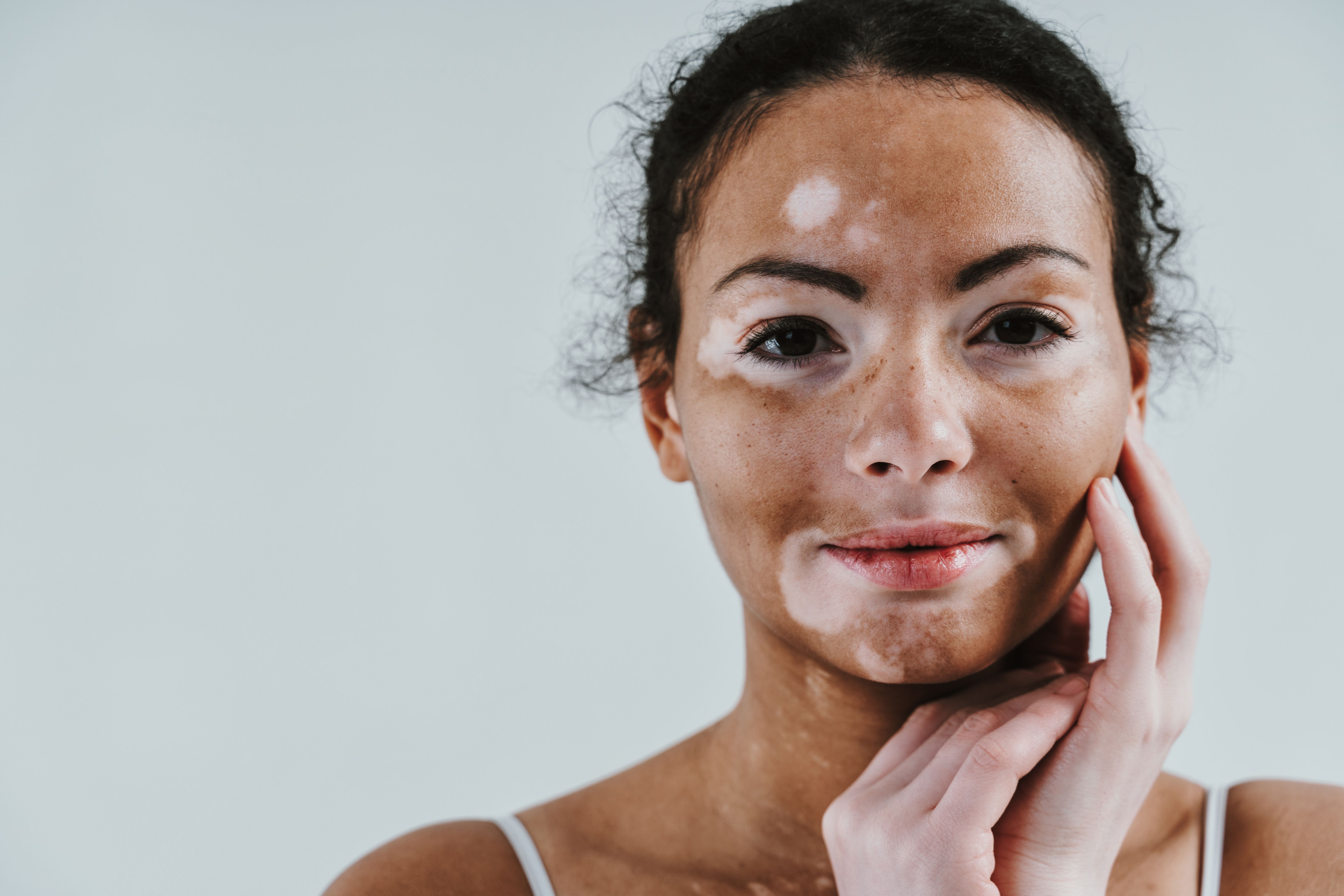- Acne
- Actinic Keratosis
- Aesthetics
- Alopecia
- Atopic Dermatitis
- Buy-and-Bill
- COVID-19
- Case-Based Roundtable
- Chronic Hand Eczema
- Chronic Spontaneous Urticaria
- Drug Watch
- Eczema
- General Dermatology
- Hidradenitis Suppurativa
- Melasma
- NP and PA
- Pediatric Dermatology
- Pigmentary Disorders
- Practice Management
- Precision Medicine and Biologics
- Prurigo Nodularis
- Psoriasis
- Psoriatic Arthritis
- Rare Disease
- Rosacea
- Skin Cancer
- Vitiligo
- Wound Care
Article
Recent Povorcitinib 2b Study Shows Improved Repigmentation
Author(s):
The investigational oral JAK1 inhibitor showed promising results for vitiligo patients.
New data from a Phase 2b clinical trial demonstrated oral povorcitinib (INCB54707) is safe and well-tolerated in adult patients with extensive nonsegmental vitiligo.1 Researchers credited the drug with substantial total body repigmentation, as measured by total Vitiligo Area Scoring Index (T-VASI).
“Vitiligo is a chronic, immune-mediated disease which, until recently, had limited treatment options available to patients. We are proud to have brought to market the first and only U.S. Food and Drug Administration (FDA) approved pharmacologic therapy for vitiligo, and continue to develop additional treatments for patients with vitiligo,” said Kurt Brown, MD in an Incyte press release. “These data suggest the potential of povorcitinib as an oral treatment for patients with extensive nonsegmental vitiligo and its potential versatility across multiple autoimmune and inflammatory conditions, including hidradenitis suppurativa for which we recently announced 52-week Phase 2 results.”
Phase 2b clinical trials were randomized, double-blind, placebo-controlled with ranging doses of povorcitinib. Patients (n=171) had to be at least 18 years old diagnosed with nonsegmental vitiligo affecting ≥8% of their body surface area.
The study met its primary endpoint goal to measure a lower percentage from baseline T-VASI to 24 weeks. Participants were randomized in a 1:1:1:1 ratio between doses. Study participants receiving povorcitinib with week 24 T-VASI scores at 15 mg (n=43), –19.1%; 45 mg (n=41), –17.8%; 75 mg (n=42), –15.7% compared to patients on the placebo (n=42), +2.3%. Additionally, more patients who received povorcitinib achieved the key secondary endpoint of T-VASI50 (≥50% reduction from baseline in the T-VASI) at the 24-week mark and continued to improve during an open-label extension period at 36 weeks of treatment.
Povorcitinib was generally well-tolerated. The most common treatment-emergent adverse events (TEAEs) during the study were COVID-19 (16.7%), headache (10.3%), fatigue (9.5%), blood creatine phosphokinase increased (7.9%), and acne (7.1%). No serious TEAEs were considered related to povorcitinib treatment. Researchers found povorcitinab to be safe.
“As vitiligo can impact patients in different ways, I am encouraged by the continued focus on expanding medical treatment options, and I believe these data highlight the potential of this investigational oral treatment for patients with extensive nonsegmental vitiligo,” said Amit G. Pandya, MD, Staff Dermatologist, Department of Dermatology, Palo Alto Foundation Medical Group and Adjunct Professor, Department of Dermatology, University of Texas Southwestern Medical Center in a press release.
Reference
1. Incyte announces data from phase 2B study evaluating povorcitinib (INCB54707) in patients with extensive nonsegmental vitiligo. Incyte. Published March 18, 2023. Accessed March 27, 2023. https://investor.incyte.com/news-releases/news-release-details/incyte-announces-data-phase-2b-study-evaluating-povorcitinib.
Newsletter
Like what you’re reading? Subscribe to Dermatology Times for weekly updates on therapies, innovations, and real-world practice tips.












